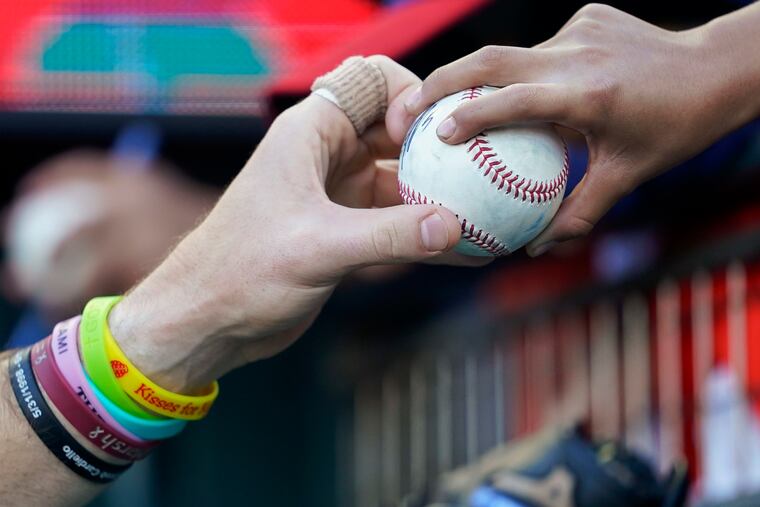What I miss about baseball of decades past
The experience of attending a major league game in person is not what it used to be.

In my lifetime, the game of baseball has undergone too many changes to recount, and more than enough to make this 82-year-old feel the weight of every one of those years.
I grew up in New York City during the reign of the Yankees under Casey Stengel, who were off on their winning streak of five straight world championships. You couldn’t walk down a rowhouse street in World Series time without at least hearing the game on the radio or finding someone — maybe a parked cabbie — who knew the score.
Now, decades after I left New York for the City of Brotherly Baseball Frustration — whose team, until now, hasn’t been in the playoffs since 2011 — it’s a good time to reflect on my own personal field of dreams. Competition for the sports entertainment dollar has dethroned baseball, with its slow pace and intricate strategies. Instead, there is NFL football, with its speed, violence, and strategies that can be ascertained only after the fact.
I lament that much of the World Series, the bulk of which takes place in early November, is likely to be played in frigid weather. It wasn’t for nothing that iconic baseball writer Roger Angell named his 1972 book The Summer Game. In my mediocrity-defining “career” — undersized left-handed pitcher for a small school in the Bronx — anyone playing baseball in 25-degree weather would immediately have been termed nuts.
We’ll skip over some of the rule changes, like the designated hitter, that people much smarter than I am have spent decades arguing over.
For me, the fading images in the rearview mirror of nostalgia are mostly about the analytics revolution and the whole experience of attending a major league game in person.
Let’s start with analytics. Instinct and gut strategy have been replaced by the most minute quantification. My Citizens Bank Park buddy — call him right-handed Paul — is more into it than I am, and a conversation with him might go something like this as he scrolls through an arcane gamut of websites.
Me: “So why does he bring in a lefty like Alvarado instead of Dominguez to face a righty like Pujols?
Him: “Alvarado does better in August against natives of the Dominican Republic.” Scroll, scroll, scroll.
My friend is seemingly immune to the quintessential octogenarian struggle to remember a password. And now we’re trying to keep track of 30 teams, as opposed to the 16 in the Casey Stengel era.
And as for the ballpark experience itself, I’m not saying it’s all bad. I kind of like the idea of being able to stuff your face at the concession stands without missing any of the action thanks to wall-mounted TVs near the crab fries and craft beers. And instant replay and very basic statistics on the scoreboard have their pluses.
When Annie Savoy (played by Susan Sarandon) talked of “the church of baseball” in the 1988 film Bull Durham, she could have been referring, in part, to the experience of going to the ballpark in the analog era.
First off, if there was a crowd of any size, you were almost sure to be seated next to someone with whom you could talk real baseball. Not who was most effective against tall right-handed pitchers in a full moon, but about the kid the Phils just brought up from the minors.
Now, everyone is distracted. The guy in front of you is likely trying to pacify a cranky toddler he brought to the ballpark because he couldn’t get a sitter. And between innings, scoreboard games seem geared to folks scientifically chosen for short attention spans.
» READ MORE: Seniors don’t have age-related difficulty mastering technology. We just lack the patience.
Worst of all to me, though, are the folks who get in your field of vision by filing in and out mid-inning. Back then you just didn’t do that. It would have been blasphemy in the church of baseball. Heresy even.
A couple of years ago, in a very tense game, a Phillie made what I have to assume was a spectacular defensive play.
Back in the day, I could have joined the communal rush as thousands of fans rose to their feet, roaring. But I saw none of it, just a conga line of “fans” carrying pizza and birdbath-sized drinks back to their seats.
A moment lost forever amid decades lost forever.
Paul Jablow is a former Inquirer reporter and editor, a resident of Bryn Mawr, and a card-carrying member of AARP. Pjablow@comcast.net